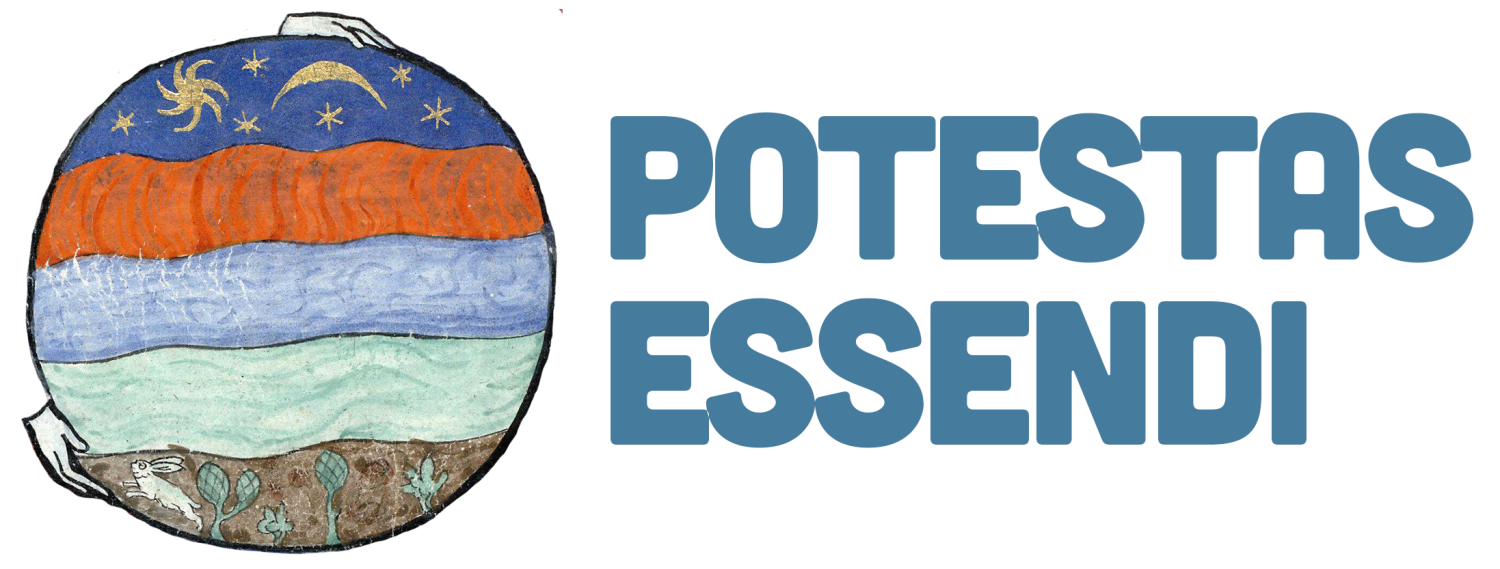
Glimpses of the Invisible: Visualising the Principles of Nature Before the Rise of Modernity
In their historical course, philosophy and science have sought to understand the intrinsic functioning of the natural world. However, beneath the observable physical objects, these disciplines often envisioned a rich structure of unperceivable entities that were believed to constitute what we see in our world as either principles or basic constituents. This population encompasses series of physical objects too small to be seen (such as elements, atoms, and corpuscles), real entities lacking physicality (such as those maintained by late scholastic hylomorphism), onto-cosmological principles (such as 氣/qi, 理/li, and 太極/taiji in Chinese philosophy), as well as imaginary and abstracted objects of different kinds.
The workshop Glimpses of the Invisible: Visualising the Principles of Nature Before the Rise of Modernity aims to explore how premodern philosophers and scientists engaged with the visual representation of these principles and entities, as well as their interactions. These objects, being unperceivable, necessitated processes of abstraction (and sometimes, analogical transfer) from the manifold instances of physical bodies in which they reveal themselves. At times, this process resulted in the creation of explanatory diagrams, such as Zhou Dunyi’s 太極圖, whose impact transcended their initial clarificatory function to become self-standing theoretical devices. On other occasions, charts and schemes employed to elucidate the interconnections among abstract entities at times resulted in a reification of the entities they sought to clarify, as exemplified by the varied reception of Porphyry’s tree. Beyond abstraction, the study of how physical entities behave prompted the position of imaginary objects whose representation, as in the case of the celestial spheres, sometimes led to their ‘concretisation’ into new real entities.
Glimpses of the Invisible aims to shed light on the interconnection between theorisation and representation of the principles of nature. Whether these entities were considered as real, abstract, imaginary, or symbolic, the chosen means of representation often transcended their clarificatory function and laid the ground for new claims in ontology, natural philosophy, and science. By opening the discussion to various forms of visualisation (including diagrams, illuminations, charts, schemes, etc.) and diverse textual genres (from philosophical and religious commentaries to scientific treatises), the workshop seeks to start a global discussion on the interplay between abstract theorisation and graphic representation of natural principles in different linguistic and cultural settings. The goal is to foster a more nuanced appreciation of the impact that visualisations may have (and have had) on the theories they complement and their later interpretations.
Prospective participants are invited to submit a brief abstract (approximately 150 words) along with an image of the visual representation they wish to discuss to the workshop organisers, Serena Masolini (smasolini@uco.es) and Nicola Polloni (nicola.polloni@unime.it) by 30 June 2024. The workshop will be conducted in a hybrid format on 28-29 November 2024, offering participants and attendees the option to either attend in person at one of the two venues (Cordoba and Messina) or join remotely via Zoom. Unfortunately, the organisers are unable to cover any expenses. Following a thorough peer-review process, accepted papers will be featured in a volume submitted to the book series Global Perspectives on the History of Natural Philosophy published by Routledge.
Confirmed invited speakers
Dominique Demange (Paris), Xudong Fang (Shanghai), Yehuda Halper (Tel Aviv), José Higuera Rubio (Madrid), Giora Hon (Haifa), Jiang Lu (Guangzhou), Sara Salvadori (Florence), Tracy Wietecha (Berlin).
Scientific committee
Qinyong Fan (Yangzhou), Jules Janssens (Leuven), Shixiang Jin (Beijing), Katja Krause (Berlin), María del Carmen Molina Barea (Córdoba), Francesca Pentassuglio (Messina), Michela Pereira (Florence).
Important dates
Submission deadline: 30 June 2024
Workshop date: 28-29 November 2024






























